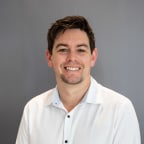
Photo: RNZ / Nate McKinnon
An esteemed health specialist believes the government needs a wake-up call around investment in health care for young people, or face further "funding crises".
Dame Sue Bagshaw's longstanding youth health centre 298 Youth Health in central Christchurch is being rebranded Te Tahi Youth.
The facility, founded by Bagshaw back in 1995, is the only spot in the city where 10-24 year olds can access free medical, sexual, mental health, wellbeing and employment services.
The youth health doctor is also stepping away from "day-to-day" operations after three decades, to focus on the impending Christchurch Youth Hub.
Speaking at a launch event on Thursday, Bagshaw delivered a warning to the government around investment in young people.
"It's about time [they] realise that young people need different health care from adults.
"Unless they realise that, we're going to go from funding crisis to funding crisis, as we have done in the last 28 years."
The centre, initially known as 198 Youth Health Centre, functioned as a one-stop shop before it was renamed Youth 298 after the centre moved to a site on Barbadoes Street, following the Canterbury earthquakes.
Speaking to media, Bagshaw said young people were the "forgotten people" of the health sector.
"Twenty percent of people can't afford to go to a GP, and if their parents can't, then the young people won't be able to.
"We know that 18- to 24-year-olds have the highest prevalence of [sexually transmitted infections], highest prevalence of depression and anxiety, highest prevalence of suicide and self-harm.
"And the young people are expected to pay full whack and they have no income, because they're mostly on a benefit, or study benefit or they're unemployed."
She described growing concerns around youth crime as "a symptom".
"If you go underneath the crime, it's a symptom of not having any chances in life.
"They've been brought up in an atmosphere of tension, violence and stress. You need to address the symptom."
Youth worker Amy Lloyd said waitlist times at the centre were something they were trying to combat.
"That's a huge problem for us as staff, is to be always on top of that," she said.
She said the problem was worsening for other services in the sector, but Te Tahi Youth was expanding its youth development team to accommodate the high demand.
Te Tahi Youth has a team of 35 doctors, nurses, counsellors, youth workers, social workers and employment specialists.
Getting out of the echo chamber
A Christchurch student, a patient of Te Tahi Youth, believed she "would still be in a bad place" without the support of the youth centre.
Twenty-year-old Camelia Anderson-Setyowati has been accessing counselling services at the facility for five years as her family could not afford healthcare.
"My mum, who was a single parent, couldn't afford counselling. I just hopped on Google and typed in 'free counselling'."
She said she struggled with severe depression, anxiety and an eating disorder, following a period of personal problems and family tension.
"When I came here I was probably in the worst place I'd ever been in."
Anderson-Setyowati said a lot of people did not know services such as Te Tahi Youth even existed.
"There was a stigma, or kids would imply that you had to be really sick to go to get help.
"It's the whole 'ambulance at the bottom of the cliff'."
She also called for support for young adults to exercise their "hobbies or to express themselves in the creative field".
"I certainly didn't and I ended up all messed-up."
Now in her final year at the Ara Institute of Canterbury, Anderson-Setyowati is a keen musician, music and jazz pianist who has played gigs around Christchurch.
She also has a musical side project with plans to enter the studio to record original material.
"I've got good people around me and I'm part of a good community. You need to get out of the echo chamber."





